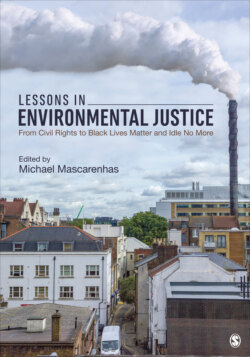Читать книгу Lessons in Environmental Justice - Группа авторов - Страница 5
На сайте Литреса книга снята с продажи.
Preface
ОглавлениеAs a first-generation college graduate—the only person in my entire extended family to graduate with a doctoral degree—and a person of color, born in the United Kingdom of refugees from South Asia, and then an immigrant and eventual citizen of Canada, and now the United States, I am intimately familiar with the experiences, challenges, and biases faced by the poor, immigrants, and people of color in Canada and the United States, where I currently reside. I have lived with displacement, poverty, and racism my entire life. As a student and later a faculty member, I have witnessed place, race, ethnic, class, gender, and able bias; lack of adequate representation of diverse backgrounds and perspectives; and other institutional variables (for example, lack of support networks and lack of diversity in leadership) that have led many students and faculty to question their existence in the academy, drop out, and leave. This intransigence of the academy has been hard to watch, but it has inspired me, through various research, teaching, and service activities and approaches, to make the academy a more diverse, fair, equitable, and inclusive place.
For me this book project marks a turning point for thinking more deeply about environmental justice and environmental racism. Its consequence is, in part, the outcome of my frustration with academia to theorize environmental injustice and environmental racism in a more meaningful way. The book is directed at undergraduate students. Many of them, like me, have experienced multiple forms of environmental injustice and environmental racism but struggle to make sense of what they are experiencing. This book is an effort to help them understand that they are not alone. This book is also directed at those who come from privileged environs, to help them understand that racism is so much more than intentional and hostile acts. As this book articulates, it is also rooted in white supremacy, white privilege, and institutional racism. I am deeply indebted to the authors who contributed to this pedagogical intervention. Their response to my poorly written outline was encouraging. And I am thrilled to write that the book is so much more than I imagined. I am sure you will agree.
